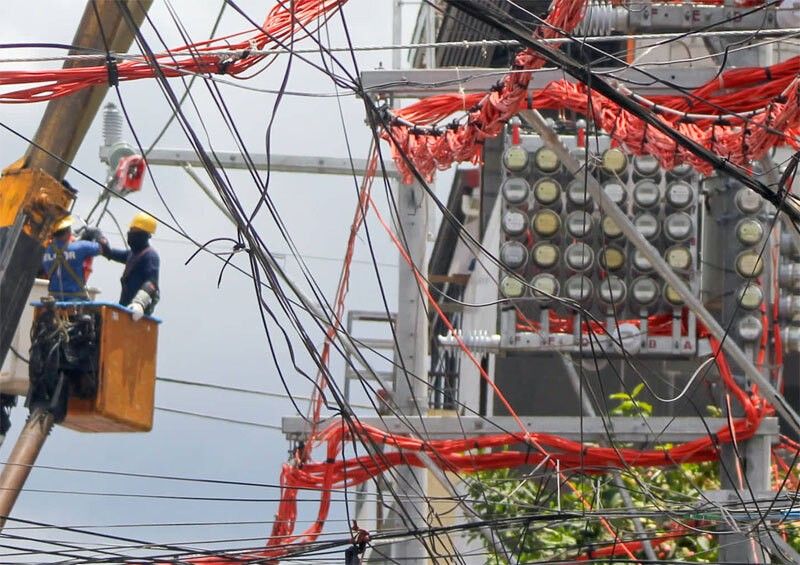Presidential power to declare energy crisis among proposed changes to EPIRA law

MANILA, Philippines — Granting the president the power to implement temporary measures during an electric power crisis or when prices are surging formed part of the amendments pushed by the Department of Energy to Republic Act 9136 or the Electric Power Industry Reform Act of 2001 (EPIRA).
The energy department’s proposed amendments to the EPIRA law, which faced scrutiny during the House energy committee hearing on Tuesday, include a provision that allows the government to issue “temporary measures” to protect consumers against surcharges in electricity or when power supply is critically low.
“The President may, upon the recommendation of the DOE, issue a declaration of electric power crisis in times of critically low electricity supply or unusually high electricity prices,” the proposed amendment reads.
“During an electric power crisis, the DOE shall issue temporary measures to mitigate the impact on the consumers and other initiatives for the efficient allocation and conservation of energy,” the amendment stated.
The effectivity of a declaration will be lifted upon the president’s approval, according to the amendment.
The DOE-proposed amendments stated in its explanatory note that the country's energy sector "continues to be driven by its large population and rapidly growing economy."
"Primary energy supply comprises indigenous energy sources followed by net imported oil and coal. However, the self-sufficiency ratio remains at 50%, showing gaps in the country’s ability to fulfill its energy needs despite the passage of the Republic Act No. 9136 (EPIRA)," the explanatory read.
During the hearing, Rep. Rosanna Vergara (Nueva Ecija, 3rd District) said the basic problem in the power industry is that market forces continue to dictate the price of electricity and that the government remains shut out of the power generation sector.
“I’m a little concerned that when there’s a power crisis, the president will be granted powers to institute temporary measures. But to really solve the cost of power, generation has to be given back to government or the government has to be allowed to participate so it can sell at the least cost. But not at a loss,” Vergara added.
A representative of the Department of Energy said the department “has not touched on the possibility” due to the cost of such a program. “But I do believe that we have enough generation and we have more coming with renewable, nuclear and all other technologies. It is more on the regulatory side that we have to address,” the DOE representative said.
A 'political' move
It would also be a “political” move for the government to gain entry into power generation, which the DOE has left it up to Congress to decide, the representative added.
To temper the monopoly in public utilities, the DOE has also floated a proposal to lower the maximum percentage of voting shares of stock that a person can have in a distribution utility and their respective holding companies from the current 25% to 15%.
The proposed amendment exempts small distribution companies and electric cooperatives from the requirement.
Marcos in 2022 expressed his interest in revising the EPIRA law due to some provisions he said were "already outdated," but he did not state which.
His administration has so far been aggressive in pushing for nuclear energy as a significant power source in the country, having met with international experts and corporate executives on the possibility of reviving the Bataan Nuclear Power Plant or locating sites for nuclear reactors here.
RELATED: New in Marcos' nuclear push: US firm seeks site in Philippines for 'costly' small reactors
A bill providing for a comprehensive atomic regulatory framework, which would clear the path for the installation of a nuclear power plant, was approved by the House nuclear energy committee in March. — Cristina Chi
- Latest
- Trending




























